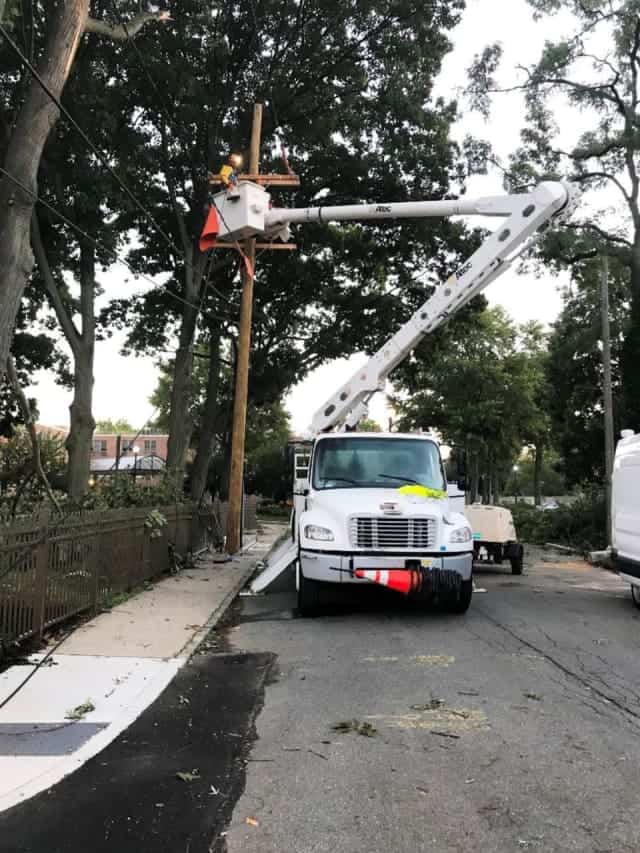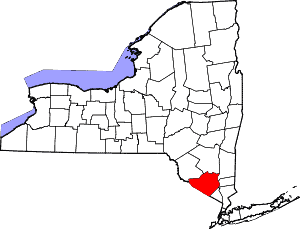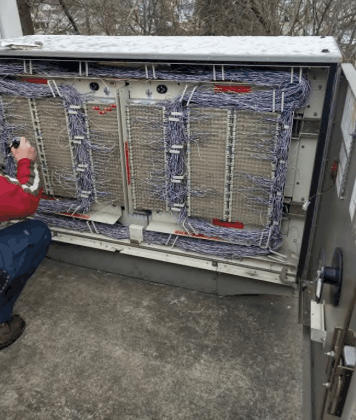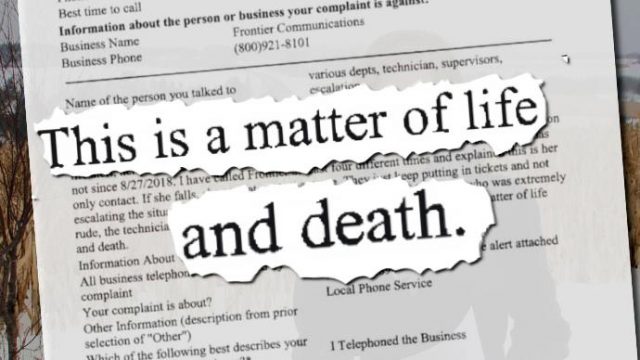
Frontier is the dominant phone company in West Virginia.
The West Virginia Public Service Commission has ordered Frontier Communications to make significant improvements in its aging copper wire telephone network after a comprehensive investigation found the company’s landline phone service and broadband to be lacking.
The order comes two years after the state began investigating the phone company and six months after a service audit was completed. In the last year, 1,342 complaints about poor service were filed with the state’s Public Service Commission.
“Frontier customers in this state remain plagued with service problems even as the customer base – and the corresponding revenue – declines. The Focused Management Audit was designed to find the underlying service quality problems, and possible solutions, in the hopes of placing Frontier on a better path,” the report concluded.
Over the past two years, Frontier gradually implemented some of the recommendations made by the state, particularly a more robust tree-trimming program to pre-emptively reduce tree-related outages and an automated system that can detect service issues and outages before customers call to complain. But Frontier’s larger problem is its lack of investment in network upgrades, particularly related to replacing old copper wire infrastructure with fiber optics. The study identified the 25 worst exchanges in the state most plagued by service outages and complaints and demanded that Frontier rehabilitate or upgrade those areas to improve service. But the company has refused the Commission’s request to deploy fiber optic connections to every cross-box in the state, which connects Frontier’s network to neighborhood phone lines. Such an upgrade would dramatically reduce Frontier’s reliance on copper wiring and improve phone and internet service.
Frontier rejected the idea as “unfeasible,” claiming it would cost $100 million to complete fiber connections to each of Frontier’s 3,255 existing cross box locations. If the company moved to digital phone service across those fiber lines, the cost would rise to $200 million, according to Frontier, adding it would have no choice but to pass these costs onto customers in the state.
“Given the exorbitant expense associated with such a comprehensive endeavor, the cost of voice service would consequently increase to unsustainable levels,” the company claimed.
Yet earlier this spring, at the height of the pandemic and after declaring bankruptcy, Frontier paid out $38 million in retention bonuses to its top executives, urging the same people who presided over the company as it went bankrupt to remain on the payroll at least until the bankruptcy was discharged.
The state was given an early warning about Frontier’s decreasing performance in July 2019 after an auditing firm found the company financially troubled and had cut back dramatically on ongoing maintenance spending. The auditor also reported Frontier was likely losing customers fast and would soon feel the financial pressure of lost revenue. Just as bad, the auditor reported Frontier’s ability to stay ahead of its service problems could be compromised further by the likely retirement of more than half of the company’s most experienced service technicians in the next five years.
The auditor correctly predicted Frontier’s financial health. The company declared Chapter 11 bankruptcy in April and is reorganizing. The company claims it will exit bankruptcy in much better financial shape, with much of its debt discharged or renegotiated by creditors. In turn, Frontier has promised to boost investment in network fiber upgrades, but has not been specific about what areas it will target. A hearing to discuss some of these matters is scheduled for Oct. 28.
Even with Frontier’s imminent exit from bankruptcy, West Virginia officials remain concerned about the phone company’s commitments and whether the new management will continue to honor earlier agreements with state officials.


 Subscribe
Subscribe A tropical storm that swept up the east coast of the United States took out Frontier Communications’ landline network, its backups, and 911 service for residents of Orange and Sullivan Counties, N.Y. for 13 hours last night, requiring a response from local fire officials after Frontier’s backup equipment also failed.
A tropical storm that swept up the east coast of the United States took out Frontier Communications’ landline network, its backups, and 911 service for residents of Orange and Sullivan Counties, N.Y. for 13 hours last night, requiring a response from local fire officials after Frontier’s backup equipment also failed.
 Frontier was not the only telecommunications company embarrassed by the tropical storm. Along the Westchester-Putnam border, power outages knocked out cell service. At one location, a backup generator designed to provide backup power to the cell tower immediately caught fire, causing damage to the building at the base of the tower.
Frontier was not the only telecommunications company embarrassed by the tropical storm. Along the Westchester-Putnam border, power outages knocked out cell service. At one location, a backup generator designed to provide backup power to the cell tower immediately caught fire, causing damage to the building at the base of the tower.



 Frontier’s primary value is putting our customers first. Our fiber network and large rural copper network serves more than 4M customers.
Frontier’s primary value is putting our customers first. Our fiber network and large rural copper network serves more than 4M customers.